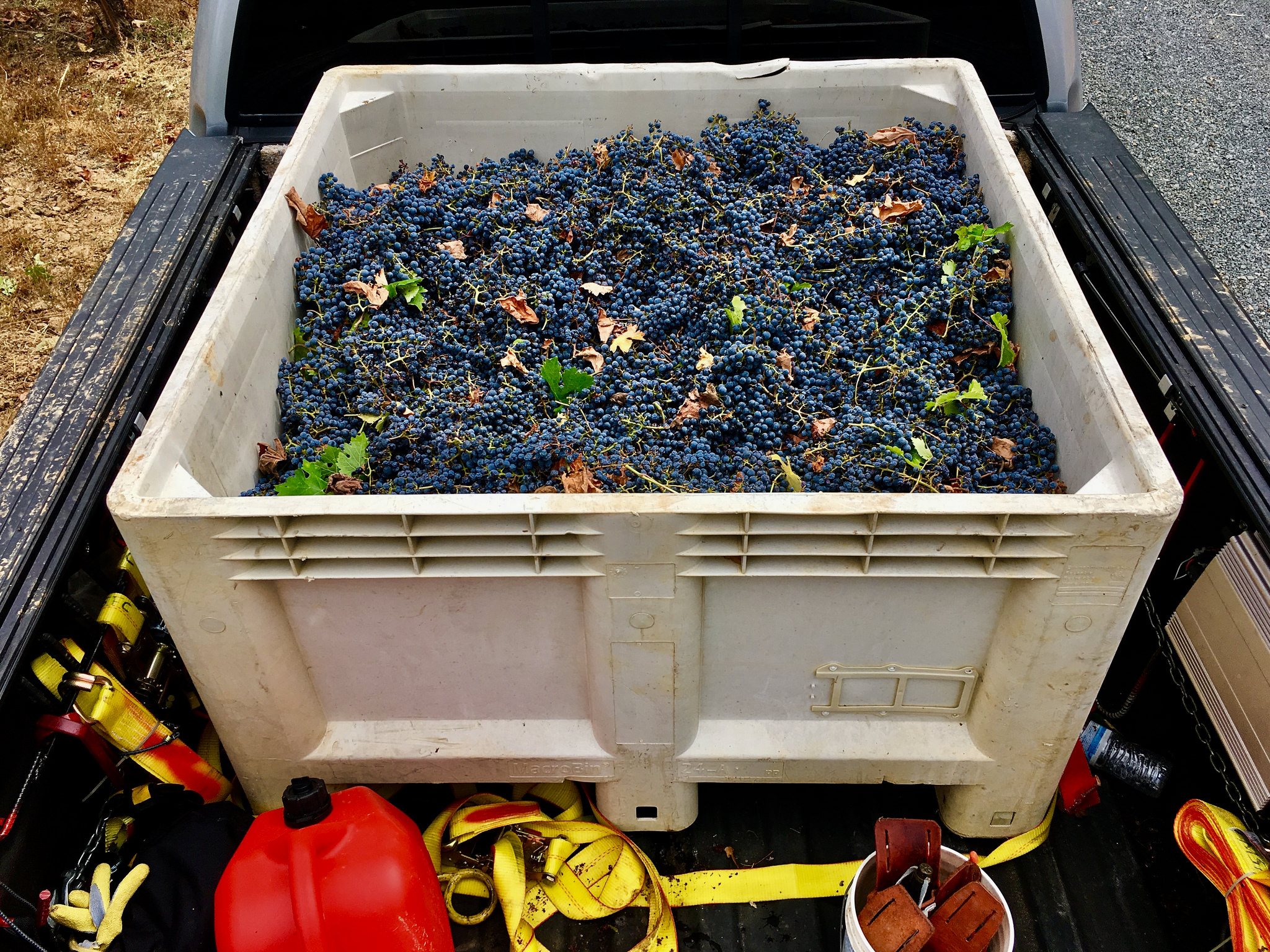Lencioni Vineyard: Ever since my first vintage in 2007, I have used minimally farmed Lencioni Vineyard Cabernet Sauvignon in Dry Creek Valley. I’m going to use the term minimalist or natural to describe what Lencioni Vineyard is and it's typical of small farms in Sonoma County.
From a distance, Lencioni Vineyard looks like any other vineyard in Sonoma County. Rolling hillside. Beautiful view. The vineyard is laid out in clean rows, the Cabernet has a wire set up, the Zinfandel is head trained and there are remnants of the old drip irrigation system in place from 35 years ago. No water has flowed through those drip lines in 27 years.
Minimalist, Feral, Natural or Wild?
It’s the up-close and personal view, walking each row, inspecting each vine that changes your perspective from bucolic vineyard to individually wild vines.
Lencioni vineyard is ‘feral’ for lack of a better term, or perhaps ‘natural’ since that seems to be a term being used more widely in the wine business these days. The rows are difficult to walk, as thorny blackberry bushes are everywhere. Some vines are long gone, dead, forgotten. The occasional poison oak plant shows up from time to time, right next to a grape vine. The vineyard is in some places terraced and undulating and rarely ever flat due to the once, sometimes twice a year tractor work.
Two things happen in the vineyard each year, the rows get disced and the vine gets pruned. That’s it. Nothing else. No sulfur has been applied on these vines in over 10 years. No soil amendments, no cover crop (unless you count blackberry bushes) and most of all, no human applied water. Only Mother Nature provides water.
With this minimalist approach, in 10 years I’ve never seen mildew or rot. The birds don’t eat the grapes. I don’t see bugs or pests. No deer or wild pigs. And without a single drop of pesticide, fungicide or foliar spray, the vineyard survives.
The Wabi - Sabi of the Vineyard
I recently highlighted the struggles micro winemakers, like me, have with small farms, irregularity in harvests being one of them. In 2011, a wet and tempermental year in Dry Creek Valley, I had zero crop from Lencioni. In 2012, regarded as a great, near perfect vintage, I received over 6 tons of fruit from the Cabernet Sauvignon vineyard, the most I’ve ever received. Since the banner year crop of 2012, I’ve seen decreasing yields each year. In 2017 I’ll have harvested less than 1 ton of fruit from the Cabernet vineyard.
Working with the minimalist Lencioni Vineyard is indicative of what micro winemakers, like me, experience; high quality, pure expression of fruit with an unreliable yield and fickle vineyard management, near textbook example of the Japanese philosophy of wabi-sabi. It's strange to hear the words unreliable and fickle in the wine business; we're conditioned to hear perfect and dependable. Working with small farms is anything but perfect, but in that imperfection is beauty, the beauty of the fruit in the final wine.
What's Love Got to Do with It?
It took one full week of labor to pick 2 tons of fruit, Zinfandel and Cabernet Sauvignon in 2017. We started picking September 1 for Zinfandel and September 5 for Cabernet. The vineyards are spread over 4.5 acres. It’s a pain to pick. It’s pure labor. Love has nothing to do with it. Paid crews don’t want to work it. The fruit is scarce, so hourly labor, not by-the-ton, is how crews got paid in the past. This year, I paid myself to pick it. Let’s hope that I can persuade someone to disc the vineyard a couple times in 2018 and get someone, other than my family, to pick Lencioni Cabernet and Zinfandel in 2018. Picking isn't easy, but like an old climbing buddy told me, "picking was easier than climbing the Eiger:" True.
The upside, after all this labor to pick such a vineyard? The fruit is delicious. The wine I make from Lencioni is intense, beautiful, colorful and full of character. I don’t need to do much of anything to it, as heartiness in the vineyard translates into heartiness on the crushpad and full-flavored wine in the bottle. The 2014 Signature is currently released and is 100% Lencioni Vineyard. The wine was completely on used barrels in 2015 and 2016 and will likely be released under my Signature label sometime in late 2018 and 2019 respectively.



